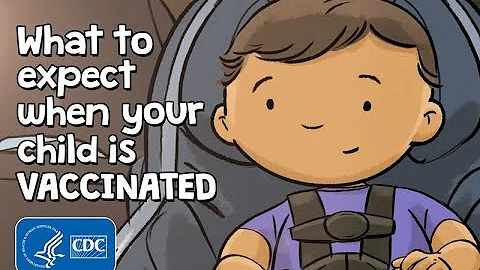Babies must receive various vaccines after birth, which can prevent many different diseases for children with low resistance, so parents also attach great importance to it. So how much do parents actually know about vaccinations? Family Doctor Online interviewed Zhang Yating, the attending pediatrician at Sun Yat-sen Memorial Hospital of Sun Yat-sen University, and gave a detailed answer to the issue of children's vaccines.

Will there be any impact if the vaccination time is advanced or delayed?
It is best to vaccinate on time, because vaccination at each time point has undergone good clinical research. But if the child is sick, such as has a fever and has used gamma globulin , then the vaccine will be delayed. Delaying vaccination will generally not affect the effectiveness of the vaccine. There is no special problem if the vaccine is made up about one or two months after the missed vaccine, or even if the vaccine is made up before one year old.
As for the vaccine in advance, generally speaking, doctors who go to the community to vaccinate are not allowed to vaccinate in advance. Because early vaccination will affect the antibodies that the mother itself gives to the baby, because when the baby is still in the mother's womb, the mother will actively and selflessly give some antibodies to the baby. After birth, if the baby is vaccinated in advance, these antibodies will Interference may occur during the vaccination period, so try not to vaccinate in advance.

What should I do if my child has a fever after vaccination?
Adverse reactions to vaccines are very common, such as babies developing fever after being vaccinated. Statistics from outpatient clinics or community doctors show that serious adverse reactions such as allergic reactions are very rare after being exposed to vaccines. If relatively common local pain occurs, low-grade fever reactions are transient and most of them can be controlled. Parents don't need to worry too much.
Generally speaking, there are two situations to consider when you have a fever after vaccination: The first is caused by the vaccine itself. The fever caused by this situation is generally below 38 degrees, and the duration will not be too long, about 2-3 sky. But if the fever reaches 40 degrees, it may be caused by infection, because viruses and bacteria exist in the area where the hospital is located. It happens that the baby is infected by inhaling bacteria or viruses during the vaccination process, so his fever will Higher. Generally speaking, fever caused by infection lasts longer. If your baby's fever exceeds 38 degrees Celsius, you can give him fever-reducing medicine in time. If your baby has a fever for more than three days and the temperature is very high, you still need to see a pediatrician.
When should I get the hand, foot and mouth vaccine?
The hand, foot and mouth disease vaccine was developed in China and is currently only available in China. It is still recommended to vaccinate if conditions permit. Children over six months old can be vaccinated, and they should be vaccinated as soon as possible. It usually involves two doses, and then the six-month vaccination, and the second dose one month apart, before one year old. Complete the vaccinations to provide more effective protection for your baby. There is no need to vaccinate children after the age of five because the chance of being infected with hand, foot and mouth disease after the age of five is very small.
In addition, the hand, foot and mouth disease vaccine can be vaccinated together with other vaccines, but now community doctors generally recommend waiting at least 15 days or even a month after vaccination before being exposed to other vaccines. According to medical theory, three to four vaccines can be vaccinated at the same time.

baby is allergic to eggs, can he get measles vaccine ?
Eight out of ten babies are allergic to eggs, so parents often ask, can my baby get the measles vaccine if he is allergic to eggs? Although the vaccination instructions say that children who are allergic to eggs should be cautious about getting the measles vaccine. As a result, many parents are worried about this. Doctor Zhang Yating said that children with mild allergies to eggs can be vaccinated against measles, unless they are allergic to eggs such as shock, angioedema, swollen face, mouth, ears, etc. Children with symptoms like swelling should not be vaccinated against measles.
After receiving the vaccine, I often hear nurses reminding me to drink more water. Why is this?
Because vaccination is equivalent to an infection process for the baby.Vaccination is to stimulate the production of antibodies in the baby. In fact, the process of getting sick is also the same, except that when we get sick, we are indeed infected with some viruses or bacteria, and vaccines are inactivated or attenuated, but in fact the truth is It's the same, it will stimulate him to produce such antibodies, so the process of vaccination is equivalent to a child getting a very small disease. Drinking more water is mainly to increase the balance of body fluids, so that the side effects of the vaccine will be relatively fewer.





















